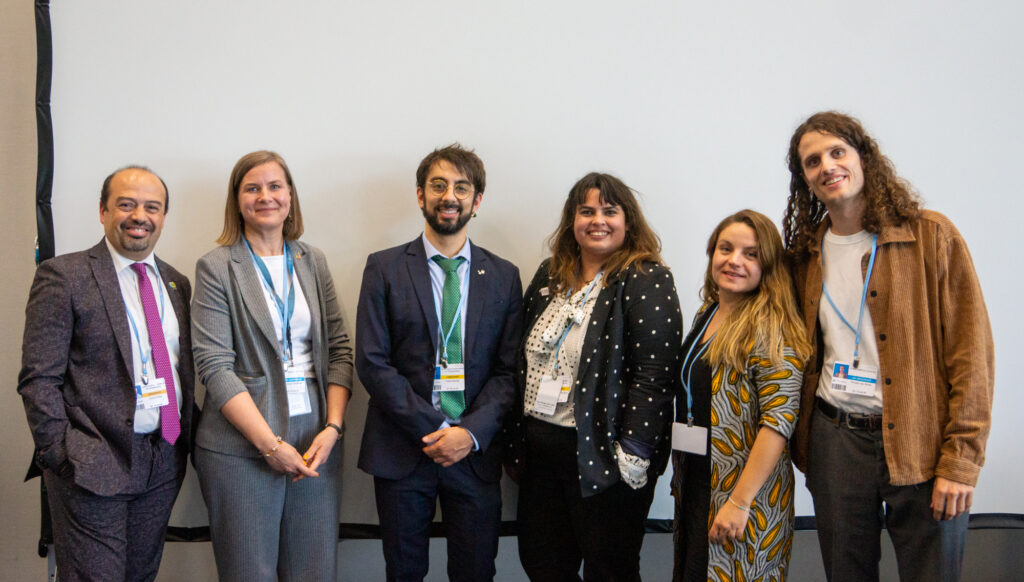Understanding urban loss: A step toward climate justice
As climate change continues to intensify, its devastating impacts are becoming more pronounced, particularly in vulnerable communities with limited adaptive capacities. Loss and Damage is a crucial concept in the global climate dialogue, addressing the adverse effects of climate change that cannot be avoided through mitigation and adaptation efforts. This blog delves into the latest discussions from Daring Cities 2024 Bonn Dialogues and the SB60 in Bonn, shedding light on the progress and challenges on Loss and Damage.
Everyone will feel the effects of the climate emergency, but it is the most vulnerable who will be hit the hardest. The critical role of local and regional governments as first responders to loss and damages incurred by climate change, as well as architects of building back better, needs to be acknowledged.
Loss and Damage (L&D) refer to the unavoidable consequences of climate change, encompassing both economic and non-economic losses. Economic losses include damage to infrastructure and property, while non-economic losses cover impacts on human health, cultural heritage, and biodiversity.
This is particularly relevant when looking at climate impacts in cities, towns and regions. As a result, Daring Cities 2024 has included exchange on Loss and Damage as a pivotal part of the Bonn Dialogues. Yunus Arikan, ICLEI’s Director of Global Advocacy and LGMA focal point, said, “Unfortunately, we need to talk about Loss and Damage. But people who are here at Daring Cities and the SB60 can bring home the message that they’re not alone and there are people working hard on this topic.”
A little bit of history
The concept of “loss and damage” is not new. Since the early 1990s, vulnerable countries, especially Small Island and Developing States (SIDS), have been advocating for compensation for the irreversible impacts of climate change. This idea gained formal traction at COP19 in 2013 with the creation of the Warsaw International Mechanism for Loss and Damage under the United Nations Framework Convention on Climate Change (UNFCCC).
In 2022, UNFCCC COP27 saw the launch of the Loss and Damage Fund, a significant step towards providing financial assistance to countries most affected by climate change. The fund aims to offer grants, rather than loans, to ensure that the financial burden does not further exacerbate the vulnerabilities of these nations.
COP28 in Dubai achieved another milestone by formally establishing the Loss and Damage Fund initially proposed during COP27, with significant pledges from several nations, including $100 million each from the UAE and Germany.
Loss and Damage at Daring Cities 2024
On the last day of the Daring Cities 2024 Bonn Dialogues, representatives from various organizations held a special discussion dedicated to the pressing issues of Loss and Damage.

From UNU-EHS’ Simone Sandholz to C40’s Jazmin Burgess and UCLG’s Pablo Sebastián Mariani, all panelists unanimously described the issue as “more pertinent than ever”, particularly in regions with minimal adaptive capacities. Local and regional governments play a crucial role in implementing policies that could directly benefit their communities, and therefore need permanent representation and inclusion in decision-making processes to ensure that solutions are grounded in climate justice and social equity..
Diving deeper on the justice matter, Douwe van Schie from UNU described L&D as a justice issue at core: People living in informal settlements, for instance, are increasingly prone to L&D impacts, which often exacerbate their pre-existing vulnerabilities. Comprehensive approaches that address multiple issues simultaneously are the only way for truly mitigating cascading effects.
To aid local and regional governments, Lea Ranalder from UN-Habitat anticipated that the special IPCC report on cities, to be released in 2027, will include significant references to L&D, providing valuable insights for urban communities. Ranalder encouraged crowd-sourcing and peer-reviewing current knowledge to make it usable by the IPCC, ensuring that the report is relevant and accessible to subnationals.
The discussions at Daring Cities 2024 and SB60 in Bonn underscored the critical need for effective and inclusive strategies to address Loss and Damage. As the impacts of climate change continue to escalate, it is imperative that subnational governments, particularly those in vulnerable regions, are equipped with the necessary resources and support to build resilience. While the COP27 Loss and Damage Fund represents a significant step in this direction, its success hinges on transparent, accountable, and inclusive governance. Strengthening international cooperation, integrating scientific and traditional knowledge, and addressing non-economic losses are vital components of a comprehensive approach to Loss and Damage.
As we move closer to COP29, it is essential to ensure that the voices of the most affected communities are heard and that their needs are prioritized in the global climate agenda. Only through multilevel collaboration and commitment can we mitigate the devastating impacts of climate change and build a more resilient and equitable future for all.







